Finding the right attorney is crucial for navigating the complexities of the legal system. In Seattle, Washington, individuals facing legal challenges can benefit from understanding the most common types of legal cases and how to find qualified legal representation. This article delves into these common case types and offers expert guidance on selecting the best attorneys for your needs.
Understanding Personal Injury Cases
Personal injury cases typically arise from accidents that result in physical or emotional harm. Common examples include car accidents, slip and falls, and workplace injuries. To find an attorney specializing in personal injury, consider the following:
- Look for experience: Choose an attorney with a proven track record in personal injury cases.
- Check reviews: Online reviews and testimonials can provide insight into an attorney’s reputation.
- Consultation: Many personal injury attorneys offer free consultations, allowing you to gauge their expertise.
Medical Malpractice: Navigating Complex Cases
Medical malpractice involves negligence by healthcare professionals that results in harm to patients. Due to the complexity of these cases, finding an attorney with specific experience in medical malpractice is essential. Look for:
- Specialization: Ensure the attorney specializes in medical malpractice law.
- Success rate: Inquire about their success rate in similar cases.
- Professional associations: Membership in associations like the American Association for Justice indicates credibility.
Breach of Contract: Legal Implications and Representation
Breach of contract cases occur when one party fails to fulfill their contractual obligations. To resolve these disputes effectively, you need an attorney familiar with contract law. Consider these factors:
- Industry knowledge: An attorney with experience in your specific industry can provide valuable insights.
- Negotiation skills: Look for a lawyer known for strong negotiation skills, which can be crucial in contract disputes.
- Litigation experience: If the case goes to court, having an attorney experienced in litigation is vital.
Property Disputes: Finding the Right Legal Help
Property disputes can involve boundary issues, ownership rights, or zoning disputes. Selecting an attorney with expertise in real estate law can significantly streamline the resolution process. Key points to consider include:
- Local experience: An attorney familiar with local property laws and regulations can be advantageous.
- Track record: Look for an attorney with a successful history in handling property disputes.
- Clear communication: Ensure the attorney communicates clearly and keeps you informed throughout the process.
Landlord-Tenant Disputes: Rights and Legal Guidance
Disputes between landlords and tenants are common and can involve issues such as eviction, rent disputes, and maintenance responsibilities. To navigate these issues effectively, consider:
- Specialization in landlord-tenant law: Finding an attorney with specific knowledge in this area is crucial.
- Local laws: An attorney should be well-versed in local landlord-tenant laws.
- Client reviews: Look for feedback from previous clients to gauge their effectiveness.
Defamation Cases: Libel and Slander Explained
Defamation cases can severely impact reputations and often involve complex legal definitions. Finding a lawyer specializing in libel and slander is essential. Here are some tips:
- Specialization: Choose an attorney with experience in defamation law.
- Understanding of media law: If the case involves media, an attorney with media law expertise can be beneficial.
- Negotiation abilities: Strong negotiation skills can help in reaching settlements.
Employment Disputes: Legal Protections and Representation
Employment disputes may arise from wrongful termination, discrimination, or workplace harassment. To assert your rights effectively, consider:
- Labor law expertise: Look for an attorney specializing in labor and employment law.
- Experience with similar cases: An attorney with a history of handling employment disputes can provide valuable insights.
- Client testimonials: Research client feedback to assess their effectiveness.
Product Liability: Holding Manufacturers Accountable
Product liability cases involve injuries caused by defective products. Finding a qualified attorney can help you navigate the complexities of these claims. Consider the following:
- Specialization in product liability: Choose an attorney with specific expertise in this area.
- Success in similar cases: Review their track record for handling successful product liability claims.
- Knowledge of regulations: An attorney should be familiar with consumer protection laws.
Wrongful Death: Seeking Justice for Lost Loved Ones
Wrongful death cases seek compensation for the loss of a loved one due to negligence. An experienced attorney can guide you through this challenging process. Important considerations include:
- Compassionate representation: Look for an attorney who understands the emotional aspects of wrongful death cases.
- Experience with similar cases: An attorney with a history of wrongful death claims can provide valuable insights.
- Clear communication: Ensure the attorney communicates effectively and keeps you informed.
Class Action Lawsuits: Collective Legal Action
Class action lawsuits allow groups to sue for similar grievances, often against large corporations. Finding an attorney experienced in class actions is essential. Consider these factors:
- Experience with class action cases: Choose an attorney with a proven track record in this area.
- Understanding of the legal process: An attorney should be well-versed in the complexities of class actions.
- Client feedback: Research past client experiences to gauge effectiveness.
Assault and Battery: Understanding Criminal Charges
Assault and battery cases involve serious criminal charges and potential civil claims. Knowing how to find a criminal defense attorney is critical. Key points to consider include:
- Criminal defense specialization: Look for an attorney specializing in criminal defense.
- Experience with similar cases: An attorney with a history of handling assault and battery cases can provide valuable insights.
- Reputation: Research their reputation within the legal community.
Drug Offenses: Navigating Legal Consequences
Drug offenses can carry severe penalties, making it crucial to identify an attorney with experience in drug-related cases. Consider the following:
- Specialization in drug law: Choose an attorney with specific expertise in drug offenses.
- Understanding of local laws: An attorney should be familiar with local drug laws and regulations.
- Client testimonials: Research client feedback to assess their effectiveness.
Theft and Burglary: Legal Representation in Criminal Cases
Theft and burglary charges require skilled legal representation. Finding an attorney familiar with criminal defense can significantly impact your case outcome. Key considerations include:
- Criminal defense specialization: Look for an attorney who specializes in theft and burglary cases.
- Experience with similar cases: An attorney with a history of handling theft cases can provide valuable insights.
- Negotiation skills: Strong negotiation skills can help in reaching favorable settlements.
Fraud and Embezzlement: Protecting Your Rights
Fraud and embezzlement cases involve serious allegations that can have long-lasting consequences. Knowing how to find a knowledgeable attorney is vital. Consider these factors:
- Specialization in white collar crime: Choose an attorney with specific expertise in fraud and embezzlement cases.
- Experience with similar cases: An attorney with a history of handling fraud cases can provide valuable insights.
- Client feedback: Research past client experiences to gauge effectiveness.
Murder and Homicide: The Importance of a Defense Attorney
Murder and homicide cases are the most serious criminal charges, and securing a skilled defense attorney is crucial for protecting your rights. Important considerations include:
- Criminal defense specialization: Look for an attorney specializing in serious criminal defense.
- Experience with similar cases: An attorney with a history of handling murder cases can provide valuable insights.
- Reputation: Research their reputation within the legal community.
DUI/DWI: Legal Consequences and Representation
DUI/DWI charges can have lasting impacts on your life. Finding an experienced attorney can help mitigate the consequences. Key points to consider include:
- Specialization in DUI law: Choose an attorney with specific expertise in DUI/DWI cases.
- Understanding of local laws: An attorney should be familiar with local DUI laws and regulations.
- Client testimonials: Research client feedback to assess their effectiveness.
Domestic Violence: Legal Protections and Support
Domestic violence cases require sensitive legal handling. Identifying an attorney who specializes in this area can provide crucial support and guidance. Consider these factors:
- Specialization in domestic violence law: Look for an attorney with specific expertise in domestic violence cases.
- Compassionate representation: Choose an attorney who understands the emotional aspects of domestic violence cases.
- Client reviews: Research feedback from previous clients to gauge their effectiveness.

Understanding Personal Injury Cases
Understanding personal injury cases is essential for anyone who has suffered from an accident or negligence that resulted in physical or emotional harm. These cases arise from various incidents, including car accidents, slip and falls, workplace injuries, and medical malpractice. The primary goal of a personal injury lawsuit is to secure compensation for the victim’s losses, which may include medical expenses, lost wages, and pain and suffering.
When seeking legal representation, it is vital to find an attorney who specializes in personal injury law. Here are some key steps to guide you in your search:
- Research Local Attorneys: Start by searching for personal injury attorneys in your area. Websites like Avvo and FindLaw provide listings of lawyers along with reviews and ratings from former clients.
- Check Credentials: Look for attorneys who have extensive experience in personal injury cases. Verify their education, certifications, and any specializations related to personal injury law.
- Consultations: Most personal injury attorneys offer free initial consultations. Use this opportunity to discuss your case and evaluate their communication style and expertise.
- Success Rate: Inquire about their track record in handling personal injury cases. An attorney with a high success rate in settlements and trials is often a good choice.
- Contingency Fees: Many personal injury lawyers work on a contingency fee basis, meaning they only get paid if you win your case. Understand their fee structure and any additional costs involved.
- Client Reviews: Read reviews and testimonials from previous clients to gauge their satisfaction with the attorney’s services. Look for patterns in feedback regarding communication, professionalism, and case outcomes.
It is important to avoid red flags such as attorneys who make unrealistic promises about the outcome of your case or those who pressure you into making quick decisions. A trustworthy attorney will provide honest assessments and allow you to make informed choices about your legal options.
In summary, finding the right personal injury attorney can significantly impact the outcome of your case. By conducting thorough research, checking credentials, and consulting multiple attorneys, you can ensure that you have a qualified professional advocating for your rights and interests.

Medical Malpractice: Navigating Complex Cases
Medical malpractice cases are among the most complex and emotionally charged legal disputes in the healthcare sector. These cases arise when a healthcare professional, such as a doctor, nurse, or hospital, fails to provide the standard of care that a reasonable provider would have delivered under similar circumstances. This negligence can lead to serious injuries or even death, which understandably causes immense distress for victims and their families. Understanding the intricacies of these cases is crucial for anyone considering legal action.
To begin with, it’s important to recognize that medical malpractice claims often hinge on proving that the healthcare provider acted negligently. This involves demonstrating that the provider deviated from accepted medical practices and that this deviation directly resulted in harm to the patient. Common examples of medical malpractice include surgical errors, misdiagnosis, medication errors, and failure to obtain informed consent. Each of these scenarios can have devastating consequences, making it essential for victims to seek justice.
When navigating the legal landscape of medical malpractice, finding the right attorney is paramount. Here are some practical steps to guide you:
- Specialization: Look for attorneys who specialize in medical malpractice law. These professionals possess the necessary expertise and are more familiar with the nuances of such cases.
- Experience: Consider the attorney’s experience level, particularly in handling cases similar to yours. An attorney with a proven track record in medical malpractice cases can significantly enhance your chances of a favorable outcome.
- Credentials: Verify the attorney’s credentials, including their education, bar admissions, and any professional affiliations with organizations such as the American Association for Justice.
- Consultations: Take advantage of initial consultations, which many attorneys offer for free. This meeting provides an opportunity to discuss your case and gauge the attorney’s approach and compatibility.
- Reviews and References: Look for client testimonials and reviews online. Additionally, asking for references can help you understand the attorney’s reputation and success rate.
Moreover, be vigilant for red flags during your search. If an attorney makes unrealistic promises about the outcome of your case or pressures you to sign a contract quickly, these could be indicators of a less-than-reputable professional. Trust your instincts; if something feels off, it’s worth considering other options.
Finally, it’s essential to understand the timeline and costs associated with medical malpractice cases. These cases can be lengthy and often require substantial financial investment upfront. Many attorneys work on a contingency fee basis, meaning they only get paid if you win your case. This arrangement can alleviate some financial pressure, but be sure to clarify all fees and expenses before proceeding.
In summary, medical malpractice cases require careful consideration and the right legal representation to navigate successfully. By following these guidelines, you can find a qualified attorney who can advocate for your rights and help you pursue the compensation you deserve.
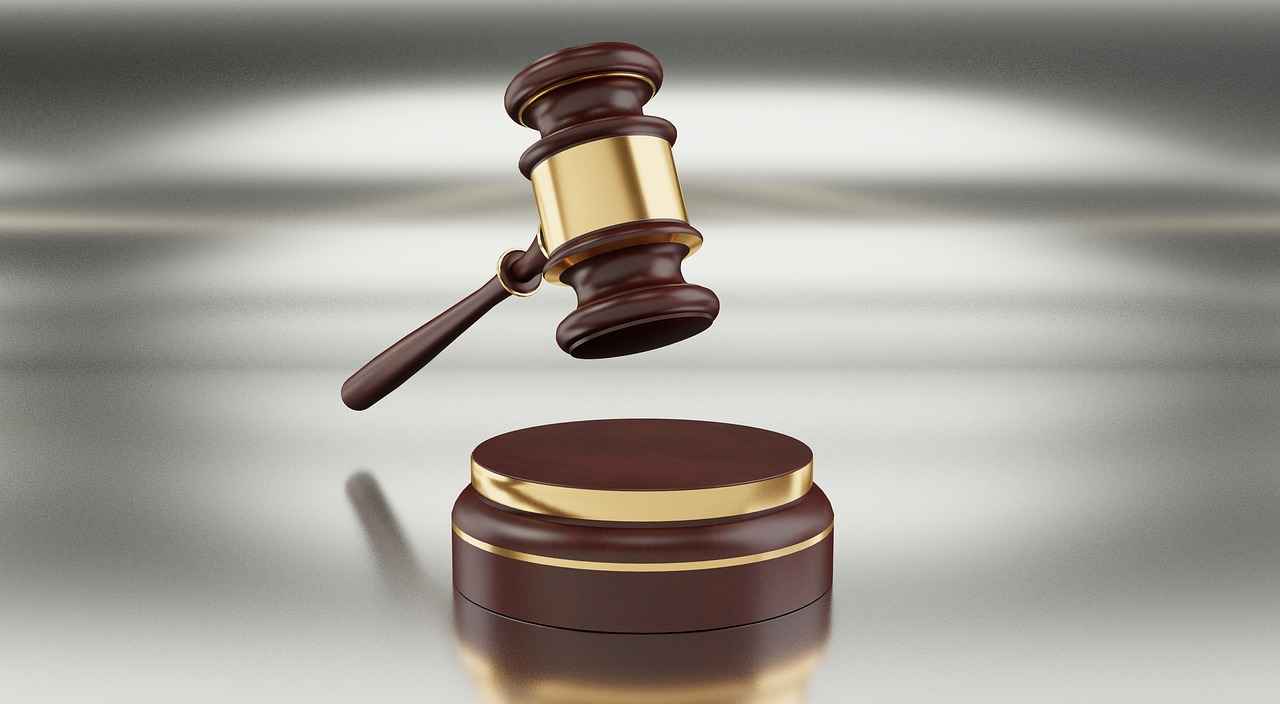
Breach of Contract: Legal Implications and Representation
Breach of contract cases occur when one or more parties involved in a contract fail to meet their obligations as specified in the agreement. This failure can take many forms, including not delivering goods or services, failing to make payments, or not adhering to agreed-upon timelines. The implications of a breach can be significant, often leading to financial losses and strained relationships between the parties involved. Understanding the complexities of contract law is crucial for anyone facing such disputes.
To navigate these challenging situations effectively, it is essential to identify a lawyer with expertise in contract law. A qualified attorney can provide invaluable guidance on the legal options available and the potential remedies that may be pursued. Here are some key aspects to consider when seeking legal representation for breach of contract cases:
- Experience in Contract Law: Look for attorneys who specialize in contract law and have a proven track record of handling breach of contract cases. Their experience will ensure they are familiar with the nuances of the law and the strategies that can be employed to protect your interests.
- Reputation and Reviews: Research potential lawyers by checking their online reviews and testimonials. Platforms like Avvo and Martindale-Hubbell can provide insights into an attorney’s reputation and client satisfaction.
- Initial Consultation: Many attorneys offer free consultations. Use this opportunity to discuss your case and gauge the lawyer’s understanding of your situation. Pay attention to how they communicate and whether they listen to your concerns.
- Fees and Payment Structures: Understand the attorney’s fee structure before hiring them. Some may charge hourly rates, while others may work on a contingency basis. Make sure you are comfortable with the payment terms.
- Communication Skills: Effective communication is vital in legal matters. Choose a lawyer who can explain complex legal concepts in a way that you can understand and who keeps you informed throughout the process.
Additionally, it is important to recognize some red flags when hiring a lawyer for breach of contract cases:
- Lack of Transparency: If an attorney is unwilling to provide clear information about their fees or the legal process, it may be a warning sign.
- Poor Communication: If you struggle to get in touch with the lawyer or receive delayed responses, consider looking for someone more accessible.
- Unclear Specialization: Ensure that the attorney you choose has a clear focus on contract law. General practitioners may not have the depth of knowledge required to handle your specific case effectively.
In summary, breach of contract cases can be intricate and challenging. By taking the time to find the right attorney with contract law expertise, you can better navigate the legal landscape and work towards a favorable resolution. Remember to conduct thorough research, ask the right questions, and trust your instincts when selecting legal representation.

Property Disputes: Finding the Right Legal Help
Property disputes can arise for various reasons, including boundary issues, questions of ownership, and disputes over usage rights. These conflicts can be complex and emotionally charged, often requiring the expertise of a qualified attorney who specializes in real estate law. Understanding how to select the right legal representation can significantly simplify the resolution process and ensure that your rights are protected.
Identifying the Type of Property Dispute
- Boundary Disputes: These occur when two property owners disagree about the location of their property lines. Such disputes can lead to costly legal battles if not resolved amicably.
- Ownership Issues: Conflicts may arise regarding the rightful owner of a property, especially in cases of inheritance or joint ownership.
- Usage Rights: This includes disputes over easements, zoning laws, and other regulations that dictate how a property can be used.
Finding a Qualified Real Estate Attorney
When searching for an attorney experienced in real estate law, consider the following steps:
- Research Local Attorneys: Start by looking for attorneys who specialize in real estate law within your area. Websites like Avvo and FindLaw provide directories of lawyers along with reviews and ratings.
- Check Credentials: Look for attorneys with relevant experience, such as those who have handled similar cases or have a background in property law. Membership in professional organizations like the American Bar Association can also indicate a commitment to the field.
- Schedule Consultations: Many attorneys offer free initial consultations. Use this opportunity to discuss your case and assess whether the attorney’s approach aligns with your needs.
Red Flags to Avoid
- Lack of Specialization: Avoid attorneys who do not specialize in real estate law. General practitioners may not have the specific knowledge required for complex property disputes.
- Poor Communication: If an attorney is unresponsive during initial interactions, it may indicate future communication issues.
- High Pressure Tactics: Be cautious of attorneys who pressure you to sign contracts or make quick decisions without allowing you to consider your options.
Understanding Legal Fees
Legal fees can vary significantly based on the complexity of the case and the attorney’s experience. It is essential to discuss fees upfront during your initial consultation. Some common fee structures include:
- Hourly Rate: Many attorneys charge by the hour, so understanding their rates and estimating the total time required for your case is crucial.
- Flat Fees: For straightforward cases, some attorneys may offer a flat fee arrangement, which can provide more predictability in costs.
- Contingency Fees: In certain cases, attorneys may work on a contingency basis, meaning they only get paid if you win your case.
Preparing for Your Consultation
Before meeting with an attorney, gather all relevant documents related to your property dispute, including:
- Deeds and titles
- Survey maps
- Any correspondence with the other party
- Photographs or evidence supporting your claim
This preparation will help the attorney understand your situation better and provide more tailored advice.
In conclusion, property disputes can be daunting, but with the right legal help, they can be resolved effectively. By understanding the types of disputes, conducting thorough research, and being prepared for consultations, you can find a qualified attorney who will advocate for your interests and help navigate the complexities of property law.

Landlord-Tenant Disputes: Rights and Legal Guidance
Landlord-tenant disputes are a prevalent issue that can arise in various forms, often leading to significant stress for both parties involved. These disputes can stem from a multitude of issues, including non-payment of rent, property damage, lease violations, or eviction processes. Understanding your rights as a tenant or landlord is crucial to resolving these conflicts effectively.
One of the first steps in addressing a landlord-tenant dispute is to familiarize yourself with the local laws governing rental agreements. Each state has its own regulations regarding tenant rights, landlord obligations, and the eviction process. For example, in Washington State, the Residential Landlord-Tenant Act outlines the responsibilities of both landlords and tenants, providing a framework for resolving disputes.
When faced with a dispute, it is essential to document all communications and interactions. Keeping a detailed record of conversations, emails, and notices can serve as valuable evidence should the situation escalate to legal action. In many cases, disputes can be resolved through open communication and negotiation. A tenant might express concerns regarding maintenance issues directly to the landlord, while landlords can clarify lease terms and expectations to avoid misunderstandings.
However, if direct communication fails to resolve the issue, seeking legal guidance may be necessary. Finding a knowledgeable attorney who specializes in landlord-tenant law can significantly impact the outcome of your case. Here are some practical steps to help you find the right legal representation:
- Research Local Attorneys: Utilize online legal directories and local bar association resources to find attorneys specializing in landlord-tenant disputes in your area.
- Check Credentials: Look for attorneys with experience in real estate law, particularly those who have handled cases similar to yours.
- Read Reviews: Online reviews and testimonials can provide insights into an attorney’s reputation and effectiveness.
- Schedule Consultations: Many attorneys offer free initial consultations. Use this opportunity to discuss your case and assess whether the attorney is a good fit.
- Ask About Fees: Understanding the attorney’s fee structure is vital. Some may charge hourly rates, while others might work on a contingency basis.
It’s also important to be aware of red flags when selecting an attorney. If an attorney guarantees a specific outcome, lacks transparency about fees, or seems disinterested in your case, these may be signs to look elsewhere. A reputable attorney will provide honest assessments and prioritize your best interests.
In summary, navigating landlord-tenant disputes requires a solid understanding of your rights and the legal landscape. By conducting thorough research, documenting interactions, and seeking qualified legal assistance when necessary, both landlords and tenants can work towards a resolution that respects their rights and responsibilities.
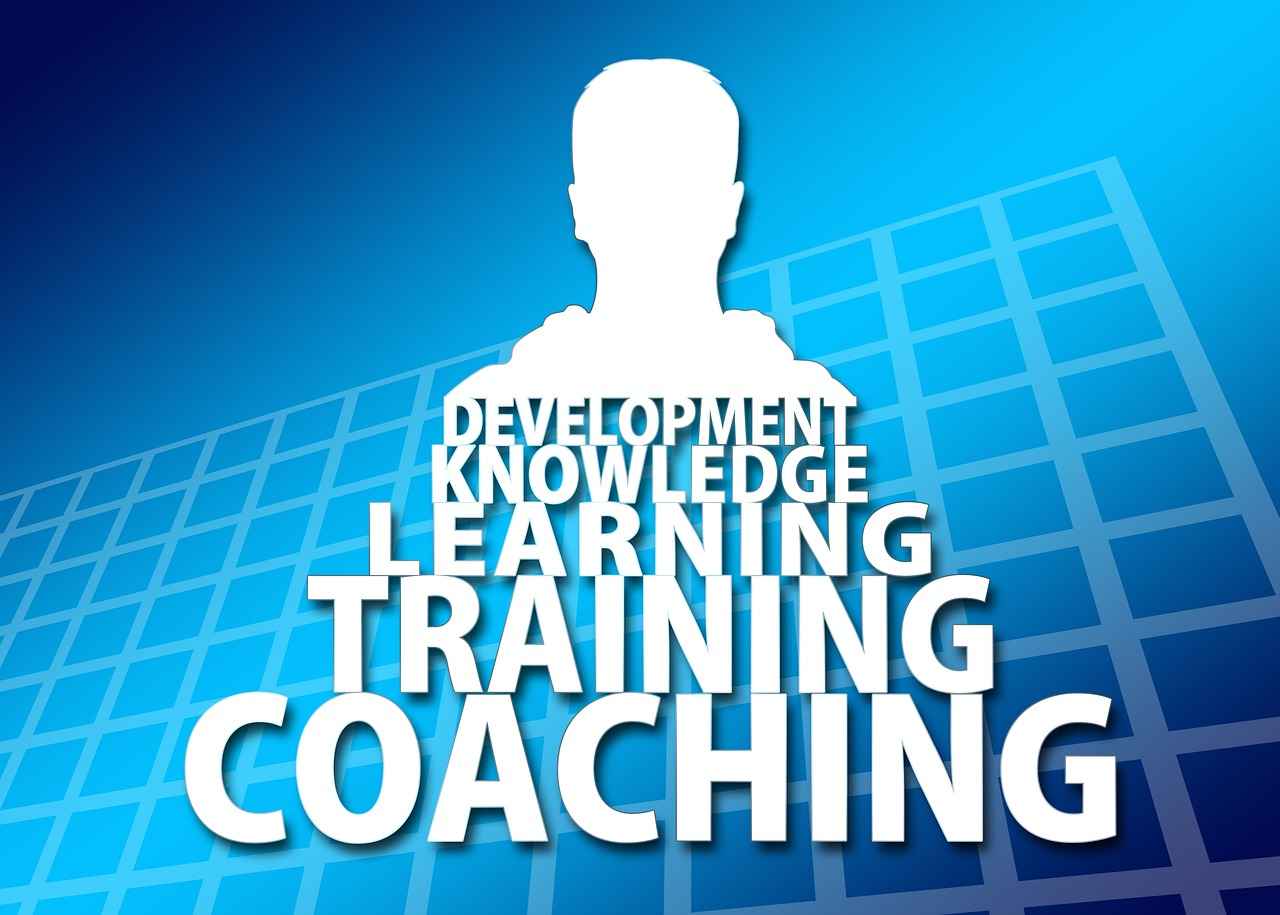
Defamation Cases: Libel and Slander Explained
Defamation cases can have a profound effect on an individual’s or a company’s reputation. In today’s digital age, where information spreads rapidly, the implications of libel (written defamation) and slander (spoken defamation) can be particularly damaging. Whether you’re a public figure or a private citizen, understanding the nuances of defamation law is crucial for protecting your interests and reputation.
When faced with a defamation issue, the first step is to find a lawyer who specializes in this area of law. A qualified attorney will have a deep understanding of the legal standards for proving defamation, which typically include demonstrating that the statement was false, damaging, and made with a certain level of fault, depending on the status of the plaintiff (public figure vs. private individual).
Here are some key factors to consider when searching for a defamation lawyer:
- Experience and Specialization: Look for attorneys who have a proven track record in handling defamation cases. Their experience will be invaluable in navigating the complexities of your case.
- Reputation: Research the lawyer’s reputation in the legal community. Online reviews, testimonials, and peer ratings can provide insight into their credibility.
- Consultation: Schedule a consultation to discuss your case. This meeting will allow you to gauge their understanding of defamation law and their approach to your specific situation.
- Fees and Billing: Understand the lawyer’s fee structure. Some attorneys may work on a contingency basis, while others may charge hourly rates. Be sure to clarify these details upfront.
- Communication Style: Choose a lawyer who communicates clearly and promptly. You want someone who will keep you informed throughout the legal process.
Additionally, be aware of red flags when hiring a defamation attorney:
- Overpromising Results: Be cautious of lawyers who guarantee a win or promise specific outcomes. Legal cases are inherently unpredictable.
- Lack of Transparency: If an attorney is not forthcoming about their experience, fees, or strategy, it may be a sign to look elsewhere.
- Pressure Tactics: Avoid lawyers who pressure you to sign contracts quickly or make hasty decisions.
In summary, defamation cases can severely impact reputations, making it essential to find a skilled lawyer who specializes in libel and slander. By considering the factors mentioned above and being vigilant about potential red flags, you can better protect your interests and navigate the legal landscape with confidence.

Employment Disputes: Legal Protections and Representation
Employment disputes are a significant concern in today’s workforce, often arising from issues such as w wrongful termination, discrimination, and harassment. These disputes can lead to serious emotional and financial repercussions for employees. Understanding your rights and how to find a qualified attorney with expertise in labor law is crucial for navigating these complex situations effectively.
First, it is essential to recognize the types of employment disputes that commonly occur. Wrongful termination can happen when an employee is fired for reasons that violate federal or state laws, such as retaliation for whistleblowing or discrimination based on race, gender, or disability. Discrimination cases can involve unequal treatment in hiring, promotions, or job assignments based on protected characteristics. Additionally, harassment claims can arise from a hostile work environment, which may include verbal abuse, unwanted advances, or discriminatory jokes.
When seeking legal representation for employment disputes, consider the following steps:
- Research and Referrals: Start by asking friends, family, or colleagues for recommendations. Online platforms like Avvo and FindLaw can also provide reviews and ratings of attorneys specializing in employment law.
- Check Credentials: Look for attorneys who are members of professional organizations, such as the American Bar Association or the National Employment Lawyers Association. These affiliations can indicate a commitment to staying updated on labor law changes.
- Initial Consultations: Many attorneys offer free initial consultations. Use this opportunity to discuss your case and gauge their understanding of employment law. Pay attention to their communication style and willingness to listen.
- Experience and Track Record: Inquire about their experience with cases similar to yours. Ask for examples of successful outcomes and how they approach litigation or settlement negotiations.
- Fee Structure: Understand their fee structure upfront. Some attorneys may work on a contingency fee basis, meaning they only get paid if you win your case. Others might charge hourly rates. Ensure you are comfortable with the financial arrangement before proceeding.
It is also vital to be aware of red flags when selecting an attorney:
- Overpromising Results: Be cautious of attorneys who guarantee specific outcomes. Legal cases can be unpredictable, and no attorney can promise a win.
- Lack of Communication: If an attorney is hard to reach or does not respond promptly to your inquiries during initial meetings, it may indicate poor communication practices in the future.
- Negative Reviews or Disciplinary Actions: Research any complaints or disciplinary actions against the attorney. Websites like the state bar association can provide this information.
In major metropolitan areas such as New York City, Los Angeles, and Chicago, there are numerous resources available to assist you in finding qualified employment attorneys. Local bar associations often have referral services that can connect you with experienced lawyers in your area. Additionally, many cities host legal aid clinics that offer free or low-cost consultations for individuals facing employment issues.
Ultimately, having the right legal representation can make a significant difference in the outcome of your employment dispute. By conducting thorough research, checking credentials, and being aware of potential red flags, you can find an attorney who not only understands labor law but also prioritizes your rights and interests. Remember, the sooner you seek legal advice, the better your chances of achieving a favorable resolution.
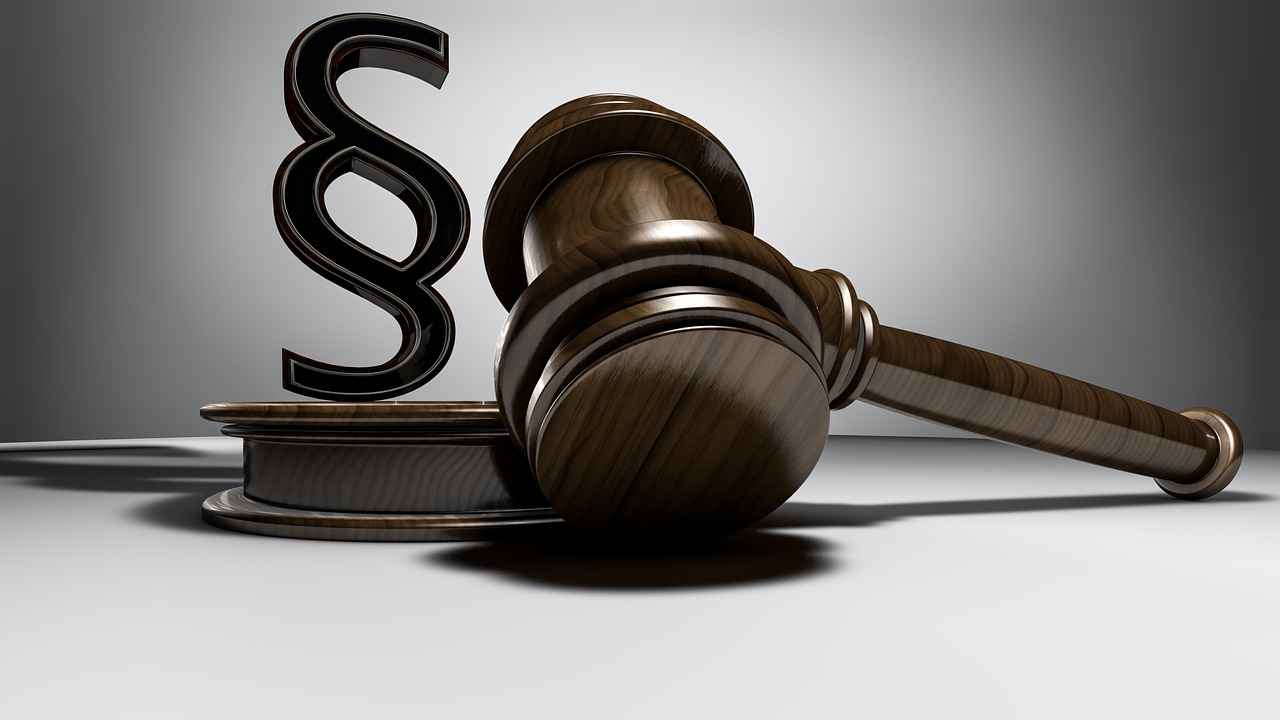
Product Liability: Holding Manufacturers Accountable
Product liability cases are a crucial aspect of consumer protection law, addressing injuries that arise from defective products. These cases often involve complex legal principles and require a thorough understanding of both the law and the specific circumstances surrounding the injury. In the United States, product liability claims can be based on various theories, including design defects, manufacturing defects, and failure to warn consumers about potential risks associated with a product.
To successfully pursue a product liability claim, it is essential to find a qualified attorney who specializes in this area of law. Here are some practical steps to help you identify the right legal representation:
- Research Local Attorneys: Start by looking for attorneys in your area who have a proven track record in product liability cases. Websites like Avvo and Lawyers.com provide listings and reviews of attorneys, allowing you to gauge their expertise and client satisfaction.
- Check Credentials: Look for attorneys who are members of professional organizations, such as the American Association for Justice (AAJ) or state trial lawyer associations. These memberships often indicate a commitment to continuing education and staying updated on legal developments.
- Ask for Referrals: Reach out to friends, family, or colleagues who may have had similar legal issues. Personal recommendations can lead you to trustworthy attorneys who have successfully handled product liability claims.
- Initial Consultations: Schedule consultations with potential attorneys. Many offer free initial meetings, which allow you to discuss your case and assess their expertise. Prepare questions to gauge their experience with product liability cases, including their approach to litigation and settlement negotiations.
- Evaluate Experience: Inquire about the attorney’s experience with cases similar to yours. Ask about their success rates and how they plan to approach your case specifically. A knowledgeable attorney should be able to explain the legal process clearly and outline potential challenges.
- Review Fee Structures: Understand the attorney’s fee structure before hiring them. Many product liability attorneys work on a contingency fee basis, meaning they only get paid if you win your case. Ensure you are comfortable with their fees and any additional costs that may arise during the legal process.
When pursuing a product liability claim, it’s vital to gather evidence that supports your case. This may include:
- Medical Records: Document any injuries sustained as a result of the defective product.
- Product Documentation: Keep receipts, manuals, and packaging that may help establish the product’s defectiveness.
- Witness Statements: Collect statements from individuals who witnessed the incident or can attest to the product’s hazards.
In addition to these steps, be aware of common red flags when hiring a product liability attorney:
- Lack of Experience: Avoid attorneys who do not have a proven track record in product liability cases.
- Pressure Tactics: Be cautious of attorneys who rush you into making decisions or signing contracts without fully explaining the implications.
- Poor Communication: If an attorney is unresponsive or fails to communicate effectively during initial consultations, it may indicate how they will handle your case.
Ultimately, holding manufacturers accountable for defective products is essential for ensuring consumer safety and justice. With the right attorney by your side, you can navigate the complexities of product liability claims and seek the compensation you deserve for your injuries.
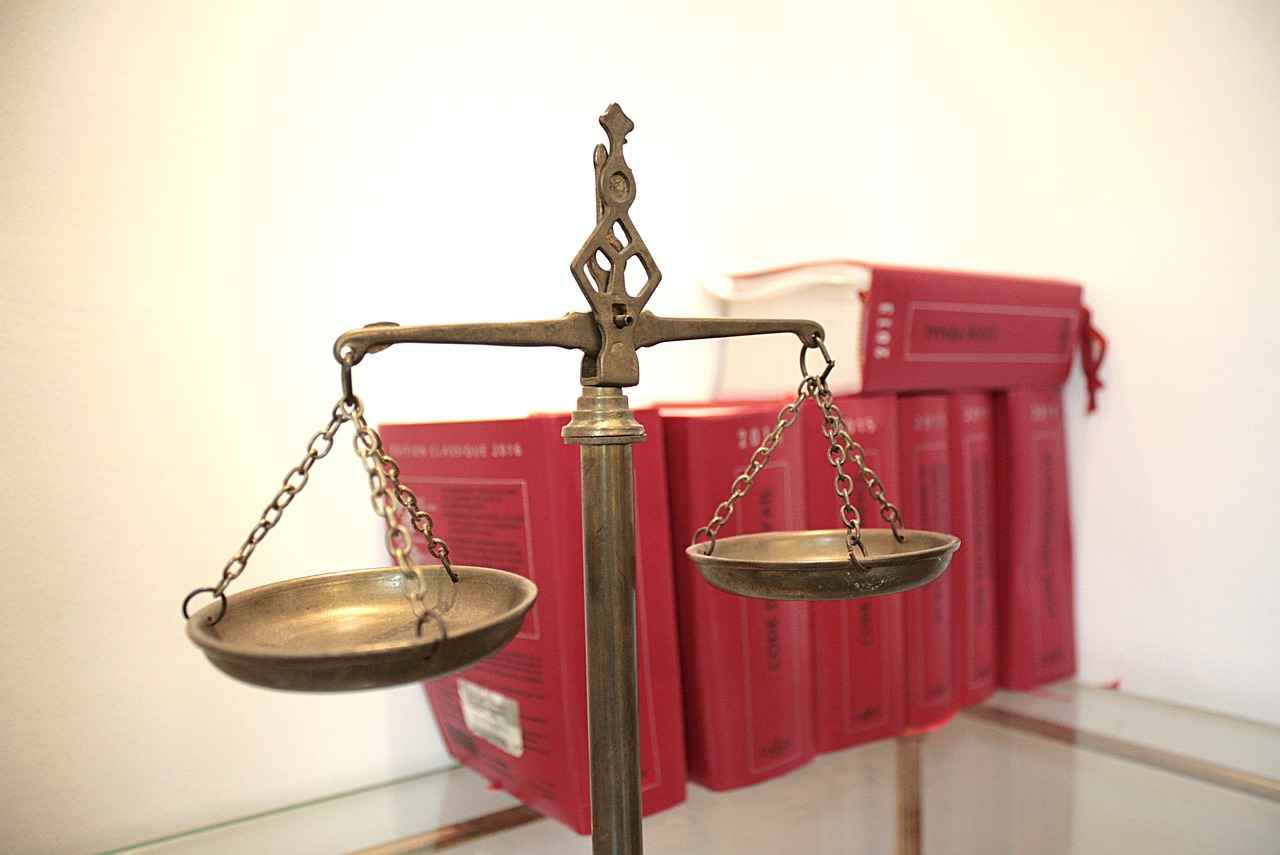
Wrongful Death: Seeking Justice for Lost Loved Ones
Wrongful death cases are among the most heart-wrenching legal matters, as they involve the tragic loss of a loved one due to the negligence or misconduct of another party. These cases not only seek financial compensation for the bereaved family but also aim to hold the responsible party accountable for their actions. Navigating the legal landscape in wrongful death cases can be complex, making it essential to have an experienced attorney by your side.
In wrongful death claims, the family members of the deceased can pursue compensation for various damages, including funeral expenses, lost income, and emotional suffering. The process typically begins with the filing of a lawsuit, which requires a thorough understanding of both state laws and the specific circumstances surrounding the death. For instance, different states have varying statutes of limitations, which dictate how long a family has to file a wrongful death claim. Therefore, it is crucial to consult with an attorney who is well-versed in the laws of your state.
When seeking legal representation for a wrongful death case, consider the following:
- Experience: Look for attorneys who specialize in wrongful death cases and have a track record of successful outcomes.
- Reputation: Check online reviews and testimonials to gauge the attorney’s reputation in the legal community.
- Consultation: Many attorneys offer free consultations, which can help you assess their expertise and approach to your case.
- Communication: Choose an attorney who communicates clearly and is responsive to your questions and concerns.
In addition to these factors, it’s important to be wary of red flags when hiring an attorney. For example, if an attorney guarantees a specific outcome or pressures you to make quick decisions, these could be signs of unprofessional conduct. A reputable attorney will provide you with a realistic assessment of your case and will not rush you into any decisions.
Moreover, understanding the potential costs associated with wrongful death cases is essential. Many attorneys work on a contingency fee basis, meaning they only get paid if you win your case. This arrangement can alleviate the financial burden during a difficult time, allowing families to focus on healing rather than worrying about legal fees.
Lastly, it’s beneficial to gather as much evidence as possible to support your claim. This may include medical records, police reports, and witness statements. An experienced attorney will know how to compile this evidence effectively, ensuring that your case is presented in the strongest possible light.
In conclusion, wrongful death cases are emotionally charged and legally intricate. Having the right legal representation can make a significant difference in the outcome of your case. By following the guidelines outlined above, you can find a qualified attorney who will advocate for your rights and help you seek justice for your lost loved ones.

Class Action Lawsuits: Collective Legal Action
Class action lawsuits are a powerful legal tool that allows a group of individuals to collectively seek justice for similar grievances against a common defendant. This type of litigation is particularly important in instances where the damages suffered by each individual may be too small to warrant a separate lawsuit, yet collectively, they represent a significant issue. For example, consumers harmed by a defective product or employees subjected to unfair labor practices may find class actions to be the most effective way to address their concerns.
Finding an attorney with specialized experience in class action litigation is essential for effective representation. Here are some key factors to consider when searching for the right legal counsel:
- Experience in Class Actions: Look for attorneys who have a proven track record in handling class action cases. They should understand the complexities involved, including class certification, discovery, and settlement negotiations.
- Reputation in the Legal Community: Research the attorney’s reputation by reading reviews, checking their standing with the state bar, and seeking recommendations from trusted sources. A well-respected attorney is likely to have established relationships that can benefit your case.
- Resources Available: Class action lawsuits often require significant resources for investigations, expert witnesses, and other expenses. Ensure that the attorney or firm you choose has the necessary financial backing and support staff to handle a potentially lengthy litigation process.
- Transparent Fee Structure: Understand how the attorney charges for their services. Many class action attorneys work on a contingency fee basis, meaning they only get paid if you win. Clarifying this upfront can help avoid misunderstandings later on.
- Initial Consultation: Take advantage of initial consultations, which many attorneys offer for free. This meeting allows you to gauge the attorney’s communication style, approach to your case, and overall compatibility with your needs.
Additionally, it’s important to be aware of the red flags that may indicate an attorney is not the right fit for your class action case:
- Limited Experience: Avoid attorneys who have little to no experience in class action lawsuits, as they may lack the necessary skills to navigate complex legal challenges.
- Poor Communication: If an attorney is unresponsive or fails to provide clear answers during your initial consultation, it may signal future communication issues.
- Pressure Tactics: Be cautious of attorneys who pressure you to sign agreements or make quick decisions without giving you adequate time to consider your options.
In conclusion, class action lawsuits serve as a vital mechanism for individuals to seek justice collectively. By carefully selecting an attorney with the right experience and resources, you can enhance your chances of a successful outcome. Remember to conduct thorough research, utilize available resources, and trust your instincts when making your decision.

Assault and Battery: Understanding Criminal Charges
Assault and battery cases are serious legal matters that involve both criminal charges and the potential for civil claims. Understanding the nuances of these cases is essential for anyone facing such allegations or those who are victims seeking justice. In many instances, the terms “assault” and “battery” are used interchangeably, but they represent distinct legal concepts.
Assault typically refers to the act of threatening or attempting to cause physical harm to another person, which may not necessarily involve actual physical contact. On the other hand, battery involves the actual physical act of causing harm to another individual. Both offenses can lead to severe legal repercussions, including imprisonment, fines, and a permanent criminal record.
When navigating the complexities of an assault and battery case, it is crucial to find a qualified criminal defense attorney who specializes in these types of cases. Here are some practical steps to assist you in your search:
- Research Local Attorneys: Start by researching attorneys in your area who specialize in criminal defense. Websites such as Avvo and FindLaw provide directories and reviews of lawyers based on their practice areas.
- Check Credentials: Look for attorneys with experience specifically in assault and battery cases. Verify their credentials, including education, years of practice, and any relevant certifications or specializations.
- Read Reviews: Client testimonials can offer insight into an attorney’s effectiveness and approach. Look for patterns in reviews, such as communication skills, courtroom success, and overall satisfaction.
- Consult Multiple Lawyers: Schedule consultations with several attorneys to discuss your case. Most attorneys offer free initial consultations, which can help you gauge their expertise and compatibility.
- Ask the Right Questions: During consultations, inquire about the attorney’s experience with assault and battery cases, their approach to defense strategies, and their familiarity with local laws and courts.
- Evaluate Communication: Effective communication is vital in legal matters. Ensure that the attorney listens to your concerns and communicates clearly about the legal process and potential outcomes.
- Discuss Fees: Understanding the attorney’s fee structure is essential. Some attorneys charge hourly rates, while others may work on a contingency basis. Be sure to clarify all costs upfront.
Additionally, it is important to be aware of any red flags during your search. Avoid attorneys who:
- Make unrealistic promises about the outcome of your case.
- Have numerous complaints or disciplinary actions against them.
- Do not seem knowledgeable about your specific legal issue.
- Pressure you into making quick decisions without fully understanding your options.
In summary, finding the right criminal defense attorney for an assault and battery case requires thorough research and careful consideration. By following the steps outlined above, you can increase your chances of securing a competent and trustworthy legal professional who can effectively advocate for your rights.
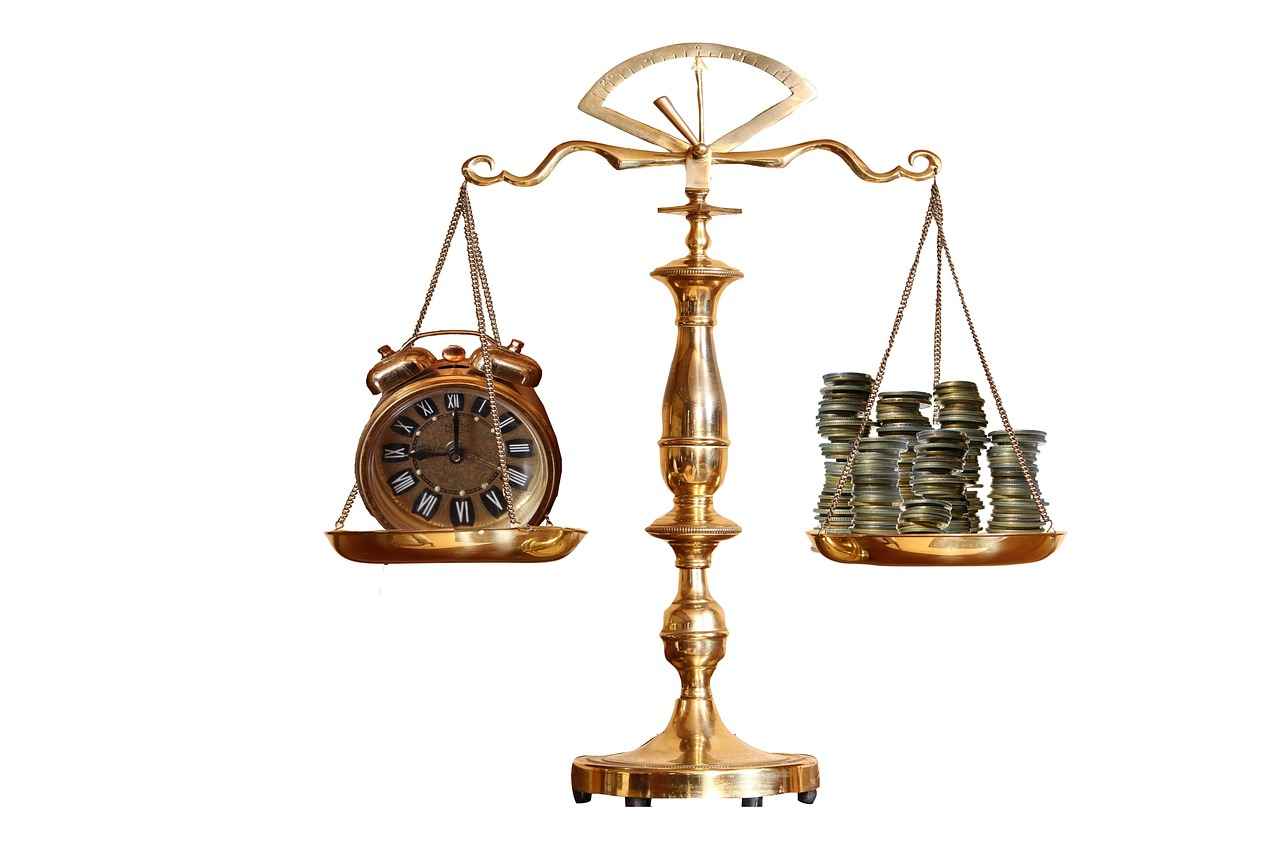
Drug Offenses: Navigating Legal Consequences
Drug offenses can have profound and life-altering consequences, often resulting in severe penalties that can include lengthy prison sentences, hefty fines, and a permanent criminal record. Understanding the complexities of drug-related laws and identifying a qualified attorney with experience in this area is crucial for anyone facing such charges. With a myriad of laws governing drug offenses, it is essential to grasp the specifics of your situation and the potential legal outcomes.
When navigating the legal landscape of drug offenses, several factors come into play. These can include the type of drug involved, the amount in possession, the intent to distribute, and prior criminal history. Each of these elements can significantly influence the charges and penalties you may face. Therefore, finding an attorney who specializes in drug-related cases is paramount. An experienced attorney can help you understand your options, whether that involves negotiating plea deals, seeking alternative sentencing, or preparing for trial.
To find the right attorney, consider the following steps:
- Research Local Attorneys: Start by searching online for attorneys who specialize in drug offenses in your area. Websites like Avvo, Martindale-Hubbell, and FindLaw provide attorney profiles, reviews, and ratings that can help you make an informed decision.
- Check Credentials: Look for attorneys who have experience specifically in drug-related cases. Verify their track record, including successful outcomes for past clients, and ensure they are licensed to practice in your state.
- Consultation: Schedule consultations with potential attorneys. Many offer free initial meetings, allowing you to discuss your case and gauge their expertise and approach. Prepare questions about their experience, strategies, and potential outcomes.
- Evaluate Communication: A good attorney should communicate clearly and effectively. Pay attention to how they explain legal concepts and whether they take the time to address your concerns.
- Understand Fees: Discuss the attorney’s fee structure upfront. Some may charge hourly rates, while others might work on a flat fee or contingency basis. Ensure you understand all potential costs involved in your case.
In addition to these steps, be aware of red flags when selecting an attorney. Avoid those who make unrealistic promises or guarantees regarding the outcome of your case, as this can indicate a lack of integrity or experience. Similarly, be cautious of attorneys who do not seem familiar with local laws or court procedures, as this can hinder your case’s success.
Ultimately, the choice of a legal representative can significantly impact the outcome of your case. By taking the time to thoroughly research and evaluate potential attorneys, you can find a qualified professional who will advocate for your rights and interests in the face of serious drug charges.

Theft and Burglary: Legal Representation in Criminal Cases
When facing theft and burglary charges, the importance of having skilled legal representation cannot be overstated. These types of criminal offenses can lead to serious consequences, including significant fines and imprisonment. Therefore, finding an attorney who specializes in criminal defense is crucial for anyone navigating these challenging legal waters.
First and foremost, it is essential to understand the differences between theft and burglary. Theft generally refers to the unlawful taking of someone else’s property with the intent to permanently deprive the owner of it. On the other hand, burglary involves entering a building or property without permission with the intent to commit a crime inside, which may or may not include theft. Given the varying legal definitions and potential defenses available, having an attorney who is well-versed in these nuances can significantly impact your case outcome.
To find the best legal representation, consider the following steps:
- Research Local Attorneys: Start by searching for criminal defense attorneys in your area. Websites like Avvo and FindLaw can provide valuable information about local lawyers, including their areas of expertise, client reviews, and ratings.
- Check Credentials: Look for attorneys with specific experience in handling theft and burglary cases. Review their educational background, years of practice, and any relevant certifications. Membership in professional organizations, such as the National Association of Criminal Defense Lawyers (NACDL), can also indicate a commitment to staying updated on legal trends.
- Schedule Consultations: Most attorneys offer free initial consultations. Use this opportunity to discuss your case and ask about their experience with similar charges. Pay attention to how they communicate and whether they seem genuinely interested in helping you.
- Evaluate Communication Style: Effective communication is key in any attorney-client relationship. Ensure that the lawyer you choose is someone you feel comfortable discussing sensitive issues with and who explains legal concepts clearly.
- Consider Fees: Understanding the attorney’s fee structure is crucial. Some attorneys charge a flat fee, while others bill hourly. Make sure to discuss payment options and any potential additional costs upfront to avoid surprises later.
It’s also important to be aware of red flags when selecting an attorney. If a lawyer guarantees a specific outcome, this can be a warning sign, as no attorney can predict the exact result of a case. Additionally, if an attorney is unresponsive or dismissive during your initial consultations, it may be best to continue your search.
In summary, navigating theft and burglary charges requires not only understanding the legal landscape but also finding the right legal representation. By conducting thorough research, checking credentials, and evaluating communication styles, individuals can secure the best possible defense for their case.

Fraud and Embezzlement: Protecting Your Rights
Fraud and embezzlement cases involve serious allegations that can have devastating effects on individuals and businesses alike. The complexities of these cases require a specialized approach, and knowing how to find a knowledgeable attorney is vital for navigating these challenging legal waters. With over 30 years of experience in the U.S. legal system, I can provide essential insights into how to protect your rights and secure effective legal representation.
Understanding Fraud and Embezzlement
Fraud typically involves deceitful practices aimed at securing unfair or unlawful gain, while embezzlement refers to the misappropriation of funds placed in one’s trust. Both of these offenses are serious and can lead to significant legal repercussions, including hefty fines and imprisonment. Therefore, it is crucial to engage an attorney who specializes in white-collar crime and has a proven track record in handling such cases.
How to Find a Qualified Attorney
When searching for an attorney to handle fraud and embezzlement cases, consider the following methods:
- Referrals: Start by asking friends, family, or colleagues for recommendations. Personal experiences can often lead you to trustworthy legal professionals.
- Online Legal Directories: Websites like Avvo, Martindale-Hubbell, and the American Bar Association provide lists of lawyers based on their specialties. These platforms often include client reviews and ratings, which can help you gauge an attorney’s reputation.
- Local Bar Association: Contacting your local or state bar association can provide you with a list of qualified attorneys who specialize in fraud and embezzlement. They can also inform you about any disciplinary actions taken against a lawyer.
Credentials to Look For
When evaluating potential attorneys, pay attention to the following credentials:
- Specialization: Ensure the attorney specializes in white-collar crime, particularly fraud and embezzlement cases.
- Experience: Look for an attorney with substantial experience in handling similar cases. Ask about their success rate and any notable cases they have managed.
- Education: An attorney’s educational background can provide insight into their expertise. Consider those who have graduated from reputable law schools and have additional certifications in criminal law.
Questions to Ask During the Consultation
Before hiring an attorney, it is essential to ask pertinent questions to assess their suitability for your case:
- What is your experience with fraud and embezzlement cases?
- Can you provide references from past clients?
- What is your approach to handling cases like mine?
- What are your fees, and do you offer payment plans?
Red Flags to Avoid
While searching for an attorney, be vigilant for red flags that may indicate a lack of professionalism or expertise:
- Lack of Communication: If the attorney is difficult to reach or does not respond promptly to inquiries, it may indicate a lack of commitment.
- Unrealistic Promises: Be wary of attorneys who guarantee specific outcomes or make exaggerated claims about their success rates.
- No Clear Fee Structure: Transparency in fees is crucial. Avoid attorneys who are vague about their billing practices or who pressure you into signing contracts without discussing fees.
Conclusion
Securing the right legal representation for fraud and embezzlement cases is essential to protect your rights and interests. By conducting thorough research, asking the right questions, and being aware of potential red flags, you can find an attorney who will effectively navigate the complexities of your case. Remember, the stakes are high, so take the time to ensure you are making an informed decision.

Murder and Homicide: The Importance of a Defense Attorney
Murder and homicide cases are among the most serious criminal charges an individual can face. The legal implications of these charges can lead to severe penalties, including life imprisonment or even the death penalty in certain jurisdictions. Therefore, securing a skilled defense attorney is not just advisable; it is crucial for protecting your rights and interests.
When facing such grave allegations, the stakes are incredibly high. A competent defense attorney can help navigate the complexities of the legal system, ensuring that your case is handled with the utmost care and precision. Here are some essential factors to consider when seeking legal representation in murder and homicide cases:
- Experience in Criminal Law: Look for an attorney who specializes in criminal defense, particularly in murder and homicide cases. Their experience will be invaluable in understanding the nuances of the law and courtroom procedures.
- Track Record: Investigate the attorney’s past cases and outcomes. A successful history in defending similar charges can provide insight into their ability to manage your case effectively.
- Client Reviews: Read testimonials and reviews from former clients. This feedback can reveal the attorney’s communication style, reliability, and overall effectiveness.
- Legal Strategy: During initial consultations, pay attention to how the attorney plans to approach your case. A well-thought-out strategy tailored to your specific circumstances is a positive sign.
- Availability: Ensure that the attorney has the time and resources to dedicate to your case. A heavily loaded schedule may mean less attention to your defense.
In addition to these factors, it is also important to be aware of potential red flags when hiring a defense attorney:
- Promises of Guaranteed Outcomes: Be wary of any attorney who guarantees a specific outcome; legal cases are unpredictable.
- Lack of Transparency: An attorney should be upfront about their fees, strategies, and potential challenges in your case.
- Poor Communication: If an attorney is difficult to reach or does not respond promptly, it may indicate how they will handle your case.
In metropolitan areas like New York City, Los Angeles, and Chicago, finding the right attorney can be particularly challenging due to the sheer number of legal professionals available. Utilize online platforms such as Avvo, FindLaw, and Martindale-Hubbell to compare attorneys based on their specialties, reviews, and credentials. Additionally, consider seeking referrals from trusted sources, including friends, family, or other legal professionals.
In summary, the importance of securing a skilled defense attorney in murder and homicide cases cannot be overstated. By understanding what to look for and what to avoid, you can make an informed decision that could significantly impact the outcome of your case. Remember, your freedom and future may depend on it.
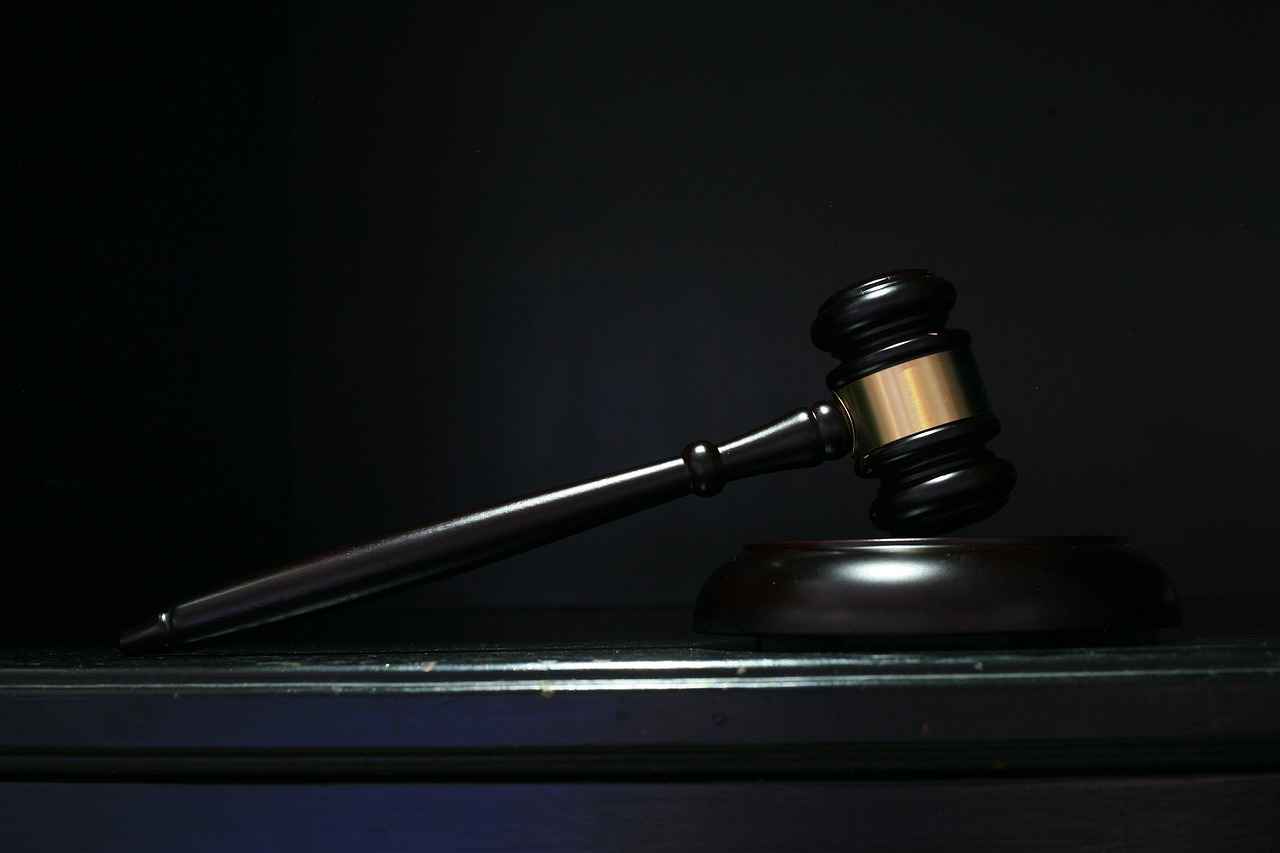
DUI/DWI: Legal Consequences and Representation
Driving Under the Influence (DUI) or Driving While Intoxicated (DWI) charges can have significant and lasting impacts on various aspects of your life, including your personal freedom, employment opportunities, and financial stability. The legal system treats these offenses seriously, and the repercussions can be severe, ranging from hefty fines to license suspension, and even imprisonment in extreme cases. Therefore, it is crucial to understand the importance of securing an experienced attorney who specializes in DUI/DWI cases to help navigate these complex legal waters.
When facing DUI/DWI charges, the first step is to seek out a qualified attorney with a proven track record in handling similar cases. Here are some practical tips on how to find the best representation:
- Research Local Attorneys: Start by searching for attorneys in your area who specialize in DUI/DWI cases. Websites like Avvo and FindLaw provide directories and reviews that can help you assess potential candidates.
- Check Credentials: Look for attorneys who are members of reputable organizations, such as the National College for DUI Defense or the American Bar Association. Membership in these organizations often indicates a commitment to staying updated on the latest laws and defense strategies.
- Evaluate Experience: Consider attorneys with a substantial amount of experience specifically in DUI/DWI cases. Ask about their success rates and whether they have experience working with cases similar to yours.
- Initial Consultations: Most attorneys offer free initial consultations. Use this opportunity to gauge their knowledge and approach to handling your case. Prepare questions in advance, such as their strategies for defense and potential outcomes.
- Discuss Fees: Understanding the fee structure is essential. Some attorneys charge flat fees, while others may bill hourly. Make sure you are clear on all potential costs involved in your defense.
When meeting with potential attorneys, pay attention to their communication style and willingness to answer your questions. A good attorney should make you feel comfortable and informed throughout the process. Additionally, be wary of any red flags, such as an attorney who guarantees a specific outcome or pressures you into making quick decisions.
Once you have selected an attorney, they will typically begin by reviewing the details of your case, including the circumstances surrounding your arrest, any evidence against you, and potential defenses. They will also advise you on the best course of action, which may include negotiating plea deals or preparing for trial.
In many jurisdictions, DUI/DWI cases can often be resolved through diversion programs or plea bargains, which may lead to reduced charges or penalties. Having a knowledgeable attorney can significantly increase your chances of achieving a favorable outcome.
In summary, facing DUI/DWI charges is a serious matter that necessitates the guidance of an experienced attorney. By conducting thorough research, checking credentials, and evaluating potential candidates, you can find the right legal representation to help mitigate the consequences of these charges and protect your future.

Domestic Violence: Legal Protections and Support
Domestic violence is a serious issue that affects countless individuals and families across the United States. It encompasses a range of abusive behaviors, including physical, emotional, and psychological harm inflicted by one partner upon another in an intimate relationship. Given the sensitive nature of these cases, it is imperative to seek legal assistance from an attorney who specializes in domestic violence law. This can provide crucial support and guidance for victims navigating the complexities of the legal system.
When searching for a qualified attorney, consider the following factors:
- Specialization: Look for attorneys who specifically focus on domestic violence cases. They will have the necessary expertise and understanding of the laws and protections available to victims.
- Experience: An attorney with a proven track record in handling domestic violence cases can offer valuable insights and strategies tailored to your situation.
- Reputation: Research online reviews and testimonials from former clients. A lawyer with a strong reputation for advocating for victims can provide peace of mind.
- Compassion: Select an attorney who demonstrates empathy and understanding. Domestic violence situations are often traumatic, and having a supportive legal representative is essential.
- Local Knowledge: Choose an attorney familiar with the local court system and laws. This knowledge can be advantageous in navigating legal proceedings.
In addition to these factors, there are several resources available for victims of domestic violence:
- Hotlines: National and local hotlines can provide immediate assistance and connect you with legal resources.
- Support Groups: Joining support groups can offer emotional support and help you find recommendations for attorneys experienced in domestic violence cases.
- Legal Aid Organizations: Many organizations provide free or low-cost legal services to victims of domestic violence, ensuring that everyone has access to legal representation.
When meeting with potential attorneys, prepare a list of questions to gauge their suitability for your case:
- What is your experience with domestic violence cases?
- What strategies do you typically employ in these situations?
- How do you approach communication and updates with your clients?
- What are your fees and payment structures?
It is also important to be aware of red flags when selecting an attorney:
- Unclear Communication: If an attorney is vague about their experience or fees, it may indicate a lack of transparency.
- Poor Reviews: Consistent negative feedback from clients can be a warning sign of inadequate representation.
- Pressure to Settle: An attorney who pushes for a quick settlement may not have your best interests in mind.
In summary, finding the right attorney for domestic violence cases is a critical step in ensuring your safety and legal rights. By focusing on specialization, experience, and compassionate representation, you can build a strong legal foundation to support your journey towards healing and justice. Remember, you do not have to face this challenge alone; there are professionals ready to help you navigate this difficult time.
Frequently Asked Questions
- What types of cases do personal injury lawyers handle?
Personal injury lawyers typically handle cases involving accidents, medical malpractice, and product liability claims. They focus on helping clients receive compensation for physical or emotional harm caused by someone else’s negligence.
- How can I find a qualified attorney for my medical malpractice case?
To find a qualified attorney for a medical malpractice case, look for lawyers who specialize in healthcare law and have a proven track record in handling similar cases. You can check online reviews, ask for referrals, and schedule consultations to gauge their expertise.
- What should I consider when choosing a lawyer for a breach of contract dispute?
When choosing a lawyer for a breach of contract dispute, consider their experience in contract law, their success rate with similar cases, and their communication style. It’s essential to find someone who understands the specific nuances of your case.
- Can a lawyer help me with landlord-tenant disputes?
Absolutely! A lawyer experienced in landlord-tenant law can help you understand your rights, negotiate with the other party, and represent you in court if necessary. They can make the process much smoother and less stressful.
- What is the role of an attorney in class action lawsuits?
An attorney in a class action lawsuit represents the interests of a group of individuals who have suffered similar harm. They help coordinate the case, gather evidence, and advocate for fair compensation on behalf of all affected parties.














